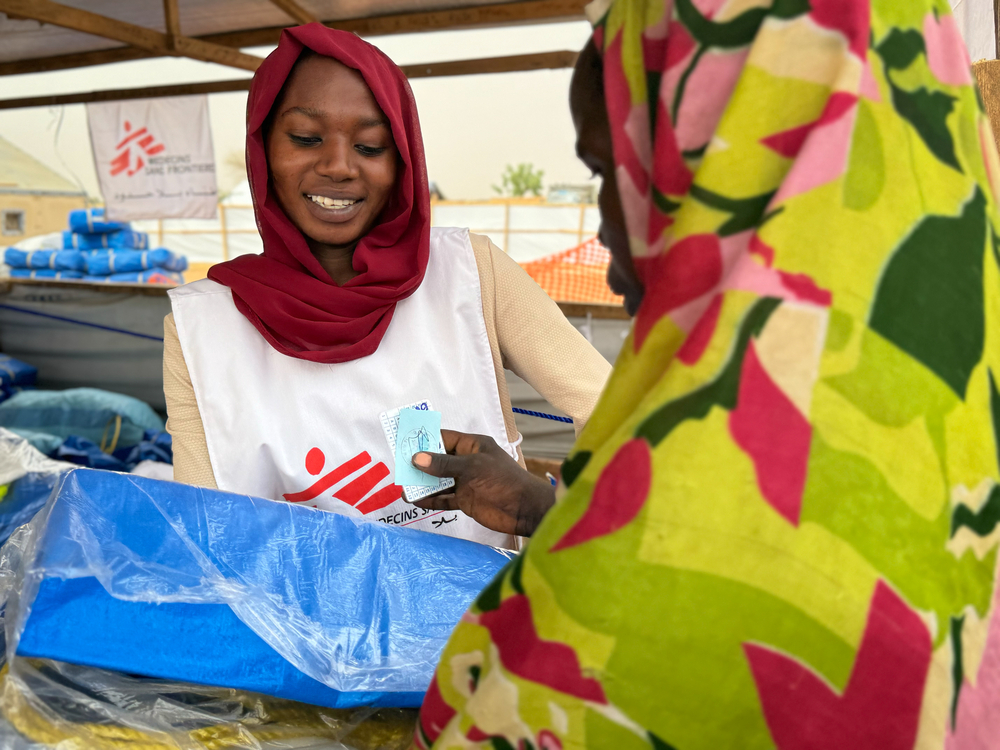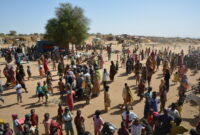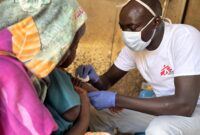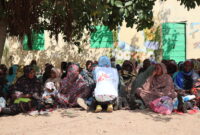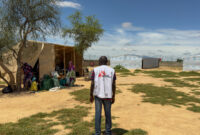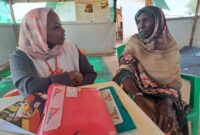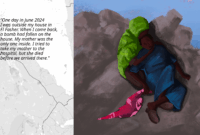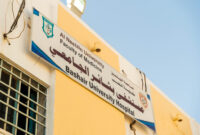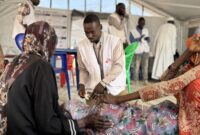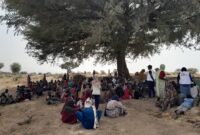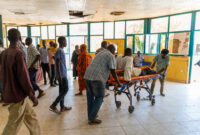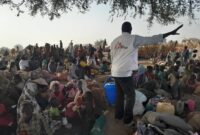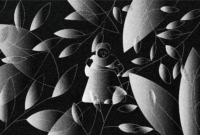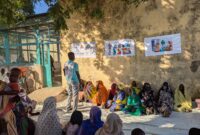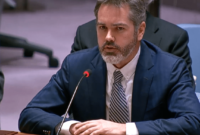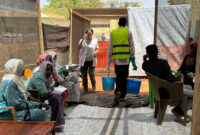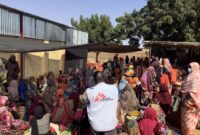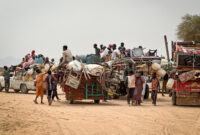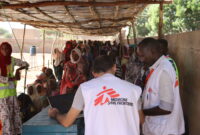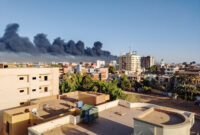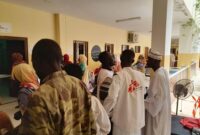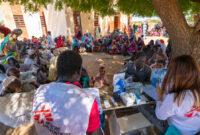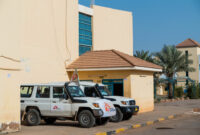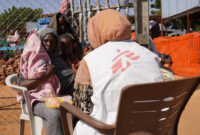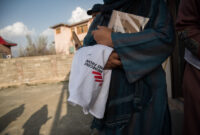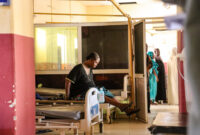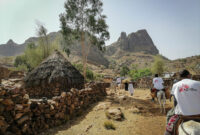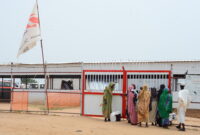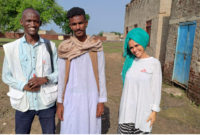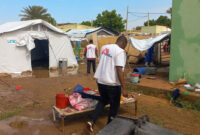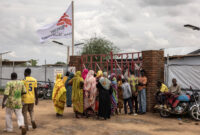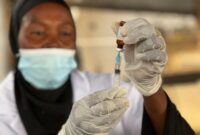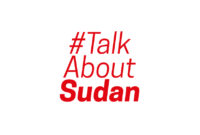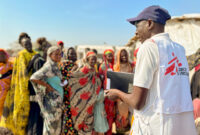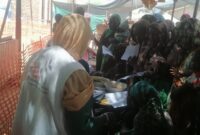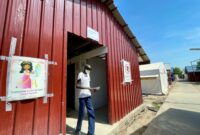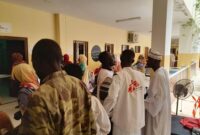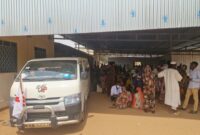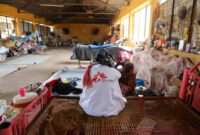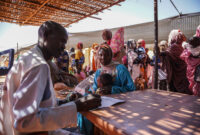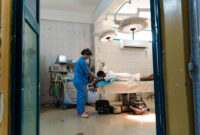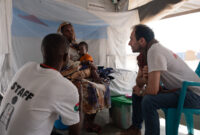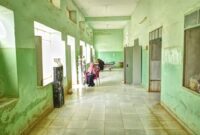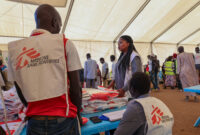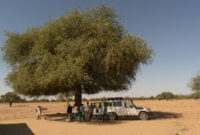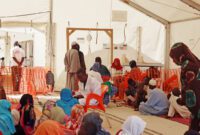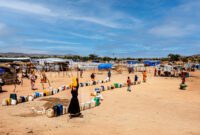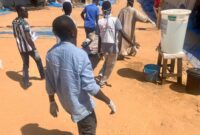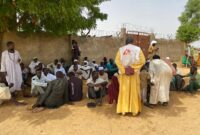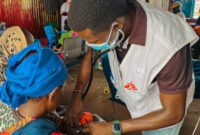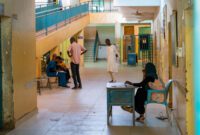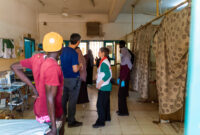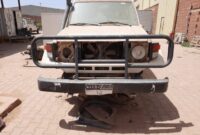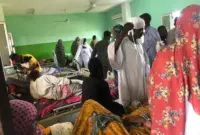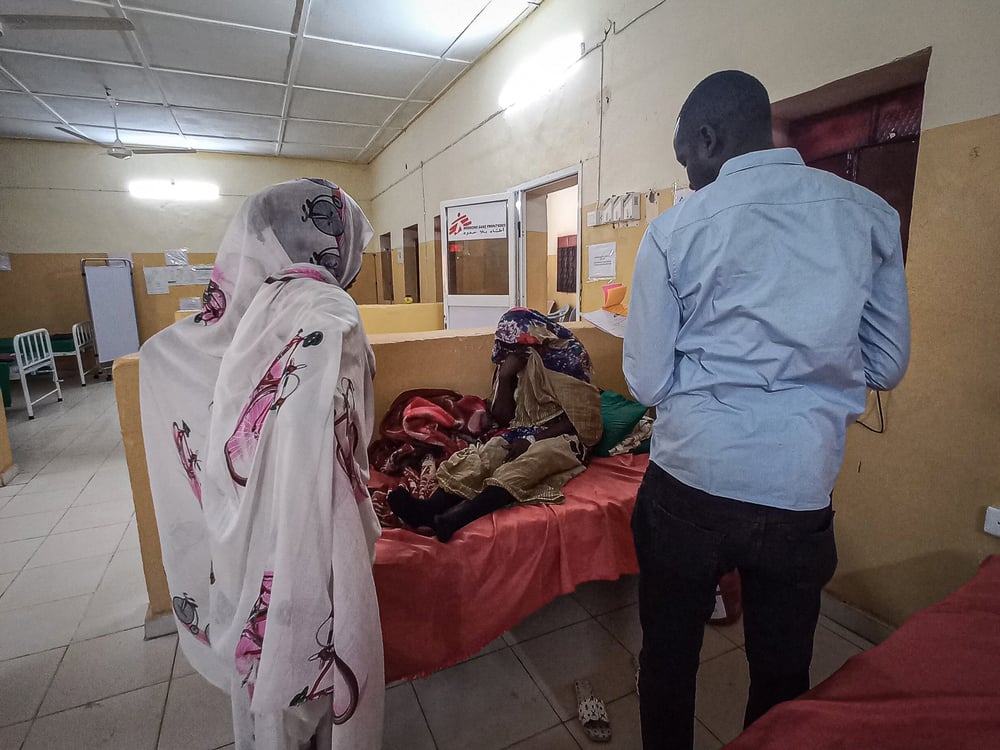Chad: Amid humanitarian void, MSF scales-up distribution of essential supplies to Refugees from Sudan
As the rainy season begins in Chad, Doctors Without Borders /Médecins Sans Frontières (MSF) is significantly scaling up its activities in eastern Chad for refugees who fled the war in Sudan. Our teams have launched a mass distribution of essential life-saving items such as plastic sheeting, mosquito nets, and bars of soap to support hundreds of thousands of refugees in Aboutengué camp and Adré transit camp. This response fills a critical gap left by UN mandated agencies, as countless families in these camps have been living without proper shelter for over a year.
On June 14, our team has been distributing these non-food items in the Aboutengué camp, providing around 5,000 families with plastic sheeting. In May, MSF also provided 11,370 mosquito nets in camp, and has been distributing soap bars per month since March. We have extended this soap distribution to provide an average of 47,000 bars monthly for a further three months until August.
These supplies are essential to prevent diseases associated with the rainy season, such as malaria and diarrhoea. But as essential as they are, they are also the minimum that can be done to preserve the dignity of these people and to prevent them from being exposed to diseases when the rains come.
The needs also come from the refugee communities with whom MSF has established regular engagement, consulting them on their urgent needs and responding to critical gaps.
“By consulting with community leaders and block leaders in Aboutengué camp, we knew that nearly 5,000 families were living in makeshift constructions without adequate roofing. The supplies we distribute enable them to take shelter and regain a sense of serenity amidst the onset of the rainy season.”
Primo Mawazo Fungamali, Logistics Team Leader for MSF in Aboutengué camp.
Since June 24, our teams have expanded these distribution activities to Adré transit camp a temporary home to more than 180,000 displaced people as per the UN data, predominantly from Darfur. 90 per cent of them are women and children.
“Here, the arrival of the rainy season means the massive return of mosquitoes, and with them, malaria. Even if our medical teams are ready, we will inevitably see an explosion in the number of cases in the camp. However, the nets we distribute should contribute to contain this trend. As for the soap, it will contribute to counter diseases that are preventable through good hygiene, such as cholera (even if no cases have been reported for the moment) or hepatitis E, for which many have already been reported cases in the camp.”
Steve Tegang, Project Medical Referent for MSF in Adré transit camp.
Only during the three first days of the ongoing distribution, 14,370 families in Adré transit camp have received plastic sheeting, mosquito nets and several bars of soap each.
“The living conditions in this camp are very harsh. Here, people live in makeshift shelters, built of straw or with any materials they find. That’s why we distribute these plastic sheets. In the meantime, they are completely exposed to the weather and when it rains, they have nowhere to shelter. Often during downpours, people come to the health points that we have built in the camp, to shelter their children.”
Sabala Gag – MSF Logistics Manager – in charge of distribution in Adré camp.
These hygiene items are the minimal can be provided as vital resources in an environment lacking essentials, from shelter to sanitation. MSF continues to supply 80 per cent of the water in Adré transit camp, emphasizing its commitment to meeting the basic needs of the refugees.
These scaling-up activities, costing over 2 million Swiss francs, divert funds typically allocated for medical care to meet these urgent livelihood needs—a gap that mandated UN agencies have yet to address.
“MSF’s core sector remains health, regardless of the contexts in which we intervene. However, in certain context and in the absence of actors specialized in other fields or when these actors lack funding, we sometimes broaden our scope of action. This is the case with the Sudanese crisis and its consequences for Chad, with the arrival of more than 600,000 refugees since last year. In Adré transit camp, we note the presence of humanitarian actors from all sectors of activity, but we also note that they often lack resources. Faced with this situation, MSF has already invested considerably in access to safe water, improving sanitation with the construction of latrines and their emptying, and the distribution of jerry cans for better transport and water conservation; all with the aim of reducing the risk of diseases due to lack of hygiene.”
Méria Aimée Nadje – Project Coordinator for MSF in Adré transit camp.
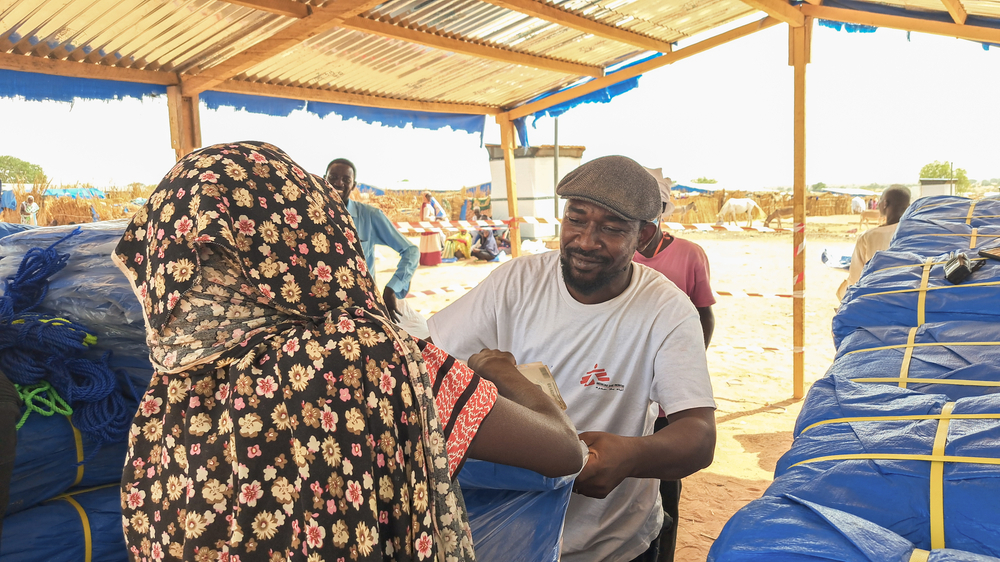
“Now, with this distribution of 46,000 kits in Adré camp, we are also working in the shelter sector. This distribution will benefit 46,000 families, which represents nearly 180,000 people, who in 90 per cent of cases are women and children. This action is being carried out as part of an emergency response related to the rainy season and the upcoming malaria peak,” Méria concludes.
MSF urgently calls for a humanitarian scale-up from all partners and the UN agencies to address the dire conditions faced by refugees from Sudan in Eastern Chad and to support ongoing efforts to mitigate the long-neglected needs of an ever-increasing population.
“The needs are immense, and while these items are essential, they cannot replace proper shelters and decent living conditions,” says Florent Uzzeni, MSF Deputy Operations Manager based in Geneva.
“It is imperative for the UN agencies and donor states to scale up their emergency aid in East Chad and ensure that these vulnerable populations of refugees from Sudan are not forgotten.”
Florent Uzzeni, MSF Deputy Operations Manager based in Geneva.
